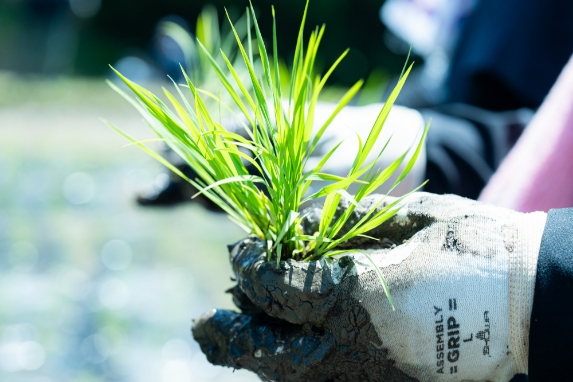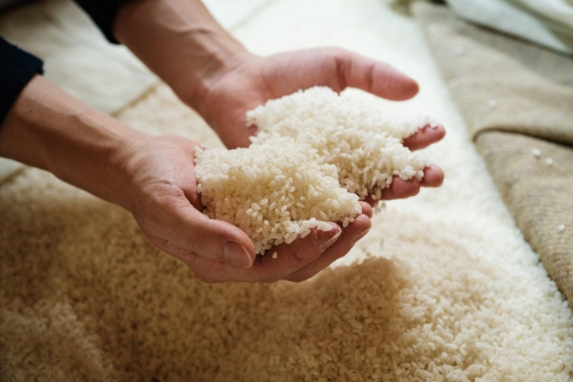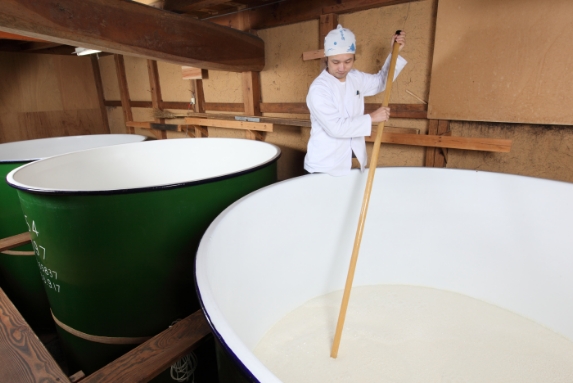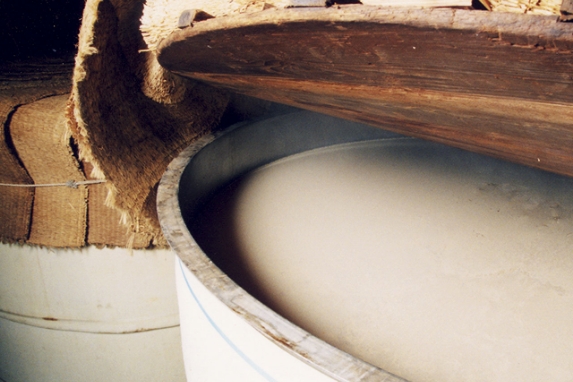飯尾醸造の酢造り

いいお酢は
いいお米から。
いい酢はいい米から。
これが私どもの考え方です。
昭和39年から地元、京都・宮津の棚田で
農薬を使わずにお米を作ってもらい、
その新米だけを原料に
お酢を造っています。

1. 農薬を使わない米づくり
「無農薬米が原料」と言うと簡単なようですが、こうしたお米から酢を造ってきた背景には、さまざまな葛藤と挑戦がありました。無農薬米づくりの歴史と私どもの想いをご紹介したいと思います。

2. 原料米について
飯尾醸造のお酢の原料となる米は、地元・丹後の棚田で作る無農薬※1米です。素性の分かる新米※2だけをこれほどまで贅沢に使った米酢は他に類をみません。毎年、すべての契約農家の米について、残留農薬検査を行い、「検出せず」を確認しています。

3. 清酒の仕込み
毎年冬になると、自社の酒蔵で杜氏が酒を仕込みます。精米から始まり、麹づくり、酒母づくり、そしてもろみの仕込み。昔ながらの酢の製法を守る私どもでは、日本酒とほぼ同じ工程で清酒を造っていきます。
※1「無農薬」・・・法律上は無農薬という表現が以前から禁止されております。商品ラベル等では「栽培期間中 農薬不使用米」と記載しております。
※2「新米」・・・前年のお米は混ざっておりませんが、秋に収穫し年が明けてからの精米になるため、新米の定義に該当しないことから商品ラベル等では「米」と表現しております。
